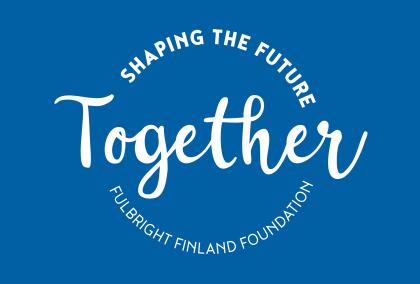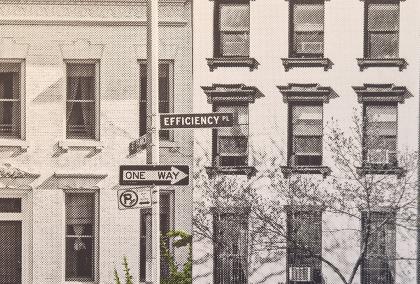Schrödinger's Lockdown
By David Carranza
Published on June 17, 2020
On March 7th, the last day I was in a classroom, the severity of the COVID-19 pandemic was finally beginning to hit me. Jokingly, I told my classmates I would see them in August. Little did I know that my sarcastic quip might become an optimistic forecast. By my own nature, I like to consider myself an optimistic realist. Two weeks prior, I participated in a course on infectious disease epidemiology as part of my master’s degree program in public and global health at Tampere University. In this course, I heard lectures on COVID-19 just as cases had started to spread rampantly across Europe. Every day, the professor would write the number of cases on the whiteboard and we would witness the exponential growth of cases in real-time. Throughout the course, my so-called optimistic realism was challenged. Surely, the hysteria of an apocalyptic-level plague was misguided, but this was starting to look like “the real deal.” Despite pointing fun at the toilet paper and grocery hoarders, the climate of the university was becoming more somber every day. Fewer students occupied the once-congested cafeteria, and libraries and the buses were beginning to appear more deserted. But surely, I told myself, this will calm down in a few weeks. After all, I could still count all the cases of COVID-19 in Finland on my fingers. The idea of a true global pandemic was more of a Hollywood screenplay than reality. The SARS, avian flu, swine flu, and Ebola pandemics came and went and did not cause sustained global lockdowns nor steep market crashes. As March 7th arrived, survival mode kicked in and I became like the very hoarders I had derided. I visited the supermarket and bought as much as I could carry and hope that it would last me at least 3 weeks. With my refrigerator stocked to the brim and toilet paper supply replenished, I was ready to ride out the storm from the comfort of my apartment nestled in the forested suburbs of Tampere.
The first week of self-imposed shelter-in-place was full flight-or-fight mode. With an invisible threat and an uncertain future, I kept occupied by absorbing as much information as possible. In those initial days, projected deaths in the U.S. were in the millions. An unfathomable loss of life was ahead. I thought, perhaps it will reach my friends, my family, or even me. In those early days, I felt like a reincarnated Schrödinger's cat – simultaneously safe and unsafe, relaxed and anxious, optimistic and pessimistic existing in some mental state of quantum superposition. This mental state was amplified when my planned indefinite shelter-in-place came crashing down as quickly as it had started after learning of the suspension and eventual termination of my Fulbright grant. Like many of my Fulbright friends, I drafted a pro/con list upon receiving word that the U.S. State Department recommended immediate return if possible. I promptly packed my suitcase and reached out to some Finnish friends in case I needed their help with storing some of my belongings. It turns out the key to evacuation planning is to have a plan! Obviously, without one, I frantically began sorting and separating clothes, electronics, and important documents and scoured through the dwindling number of flights out of Helsinki. Ultimately, considering my health and safety and that of my family, and for practical financial and academic reasons, I decided to remain in Finland. Every day I am glad I made that decision despite being at the height of my unease.
With the hard decision behind me, I slowly began unpacking my suitcase and prepared to brace for a ‘new normal’ that was far from normal. The surrealness of distance learning was the first hurdle I had to cross to find some comfort in my new life. Seeing my classmates through a 2-inch window on my computer screen, after eating lunch with them every day since August, was tough. Still, the 2 hours of virtual social interaction during classes was the highlight of each day. The second hurdle was to learn how to disconnect from the world from time to time. Prior to the pandemic, I obsessively followed the 2020 U.S. presidential primaries, even waking up at 3 or 4 in the morning to catch the live debates. Now, my attention was completely occupied by COVID-19 news. I kept refreshing news pages, social media sites, in the attempt to grasp onto some information about how this situation would play out. It was a fool’s errand – no one seemed to know more than the next person, and politicians and media pundits alike were producing steady streams of bad takes under the false dichotomy of a choice between “saving the economy or saving lives.” Though it took a few weeks, I decided to slowly limit the time I spend reading the deluge of upsetting and infuriating news out of the U.S.
Even passing those first two hurdles, my life as Schrödinger's cat, full of paradoxes, would continue. I am a public health student and a health care provider. There could not be a more relevant time to practice pharmacy or study epidemiology, biostatistics, health policy, and health systems. Yet, all I am qualified to do from my student apartment is practice social distancing, hand hygiene, and push back against disinformation among my social media network. I took an oath before I became a pharmacist to do all in my power to help the sick and now found myself in a powerless position. The pandemic as a shared collective experience is both comforting, in that I know that many are in the same situation, and frightening, because I am living under a specter of uncertainty. What if the university does not resume in-person teaching in the fall? Will I get sick? Will I get sick enough that I will be hospitalized? Will there be a second wave of the pandemic? These questions do not have answers until they do – which seems self-evident but also serves as a reminder that the future appears seemingly like a coin toss.
"This time of pandemic has also strengthened my resolve to pursue a career in public health. Trust in health officials and scientists has never been more salient than during this pandemic when lives are on the line."
Now, after nearly 3 months of social distancing, my life has settled into a consistent routine and structure among the project deadlines and planned social events via video calls with family and friends in the U.S. This time of pandemic has also strengthened my resolve to pursue a career in public health. Trust in health officials and scientists has never been more salient than during this pandemic when lives are on the line. The stress of an uncertain future of course will continue, but in the context of my new normal, I do not panic. Instead, I try to funnel the stress into productivity – spending more time learning Finnish, keeping in touch with friends and family, experimenting with cooking, or even binging documentaries on video streaming platforms. Some days are better than others, but every day is a learning experience. I moved to Finland to study health systems firsthand and I consider myself very fortunate to feel safe because I live in a country with a competent national pandemic strategy.
To find silver linings in this experience is a position of privilege that many of my fellow compatriots are not afforded, particularly with the immense loss of lives and livelihoods across the U.S. Recognizing that privilege, what is the role of those of us surviving and/or thriving during a lockdown? At a minimum, it is to show empathy and support for all people. Everyone has lost time – or perhaps it is more accurate to say that time was stolen from all of us. We have had to postpone wedding ceremonies, hold virtual graduation and birthday parties, and cancel once-in-a-lifetime vacations. We have all lost something because of the pandemic, and hopefully, this teaches us to be kinder and more empathetic towards each other. Fulbright Finland and my university faculty have been excellent role models for this through their support during my personal journey through the pandemic. When we finally enter the post-COVID-19 world, and when I can return to practice pharmacy, the support I received will bolster my fortitude to support my patients and act as their greatest advocate.
As of writing this, the COVID-19 pandemic still looms over all things – a testament to how profound the virus has penetrated all aspects of our lives. I expected my Fulbright term in Finland to be a life-changing event, and it certainly did not disappoint. Our vocabulary is now filled with novel phrases such as “social distancing” and “flatten the curve.” Now when asked, “how are you doing?” I cannot help but let out a short chuckle at the incredibly loaded question. Yet, compared to two months ago, I have fully embraced the uncertainty of the Schrödinger lockdown not as something terrifying, but as a motivating factor towards self-reflection and self-improvement. Without a specific end date in sight, it is more constructive not to view this pandemic as a long nightmare but rather a solemn time of solidarity.


